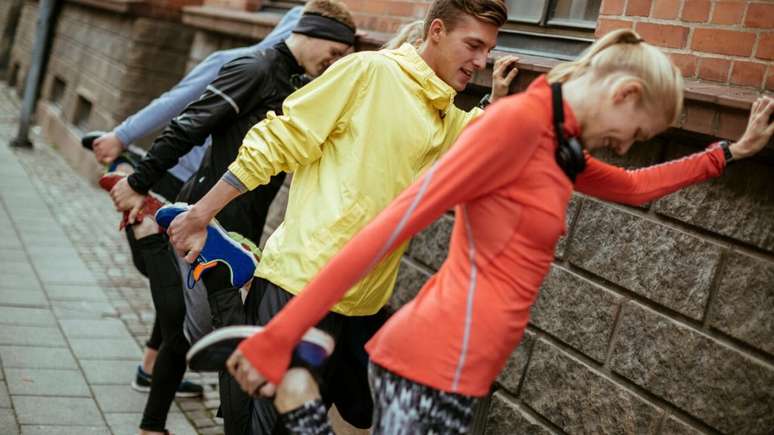Building a healthy self-image is an ongoing process that spans all stages of life
Self-esteem is an essential component that accompanies human beings in all phases of existence. From childhood, when the emotional foundation is established, through adulthood, when it becomes solid, to maturity, when we adapt to new circumstances, this self-perception affects our psychological health, social interactions and quality of life. In this sense, dedicating yourself to cultivating healthy self-esteem at all times is essential to facing adversity and celebrating victories fully.
Self-esteem in childhood
Investing in children’s development of self-esteem is essential to ensure they grow up with a positive view of themselves, which directly impacts their mental health and ability to deal with challenges throughout their lives. Healthy self-esteem during childhood is associated with lower risks of developing depressive symptoms in adolescence and adulthood, as well as promoting greater resilience and well-being emotional.
Tips for developing healthy self-esteem in children
Promoting a positive self-image from an early age is essential for healthy emotional growth. Among the strategies we can mention:
- Praise efforts, not just results: valuing the child’s process and commitment, even if the result is not perfect, to encourage perseverance and learning;
- Give your child choices: allowing her to make small daily choices, such as choosing clothes or activities, helps to develop her autonomy and security;
- Be affectionate: Show love and affection regularly. Unconditional love is a solid foundation for self-esteem;
- Avoid comparisons: every child has his own pace of development; therefore, comparing yourself to others can damage your self-image;
- Stimulate emotional communication: help the child to recognize and express your feelingscreating a safe space in which to express oneself;
- Give constructive feedback: when you correct, do it in a constructive way, explaining what can be improved without belittling the child;
- Encourage extracurricular activities: participate in sports, arts or hobby it can strengthen self-esteem, as it allows the child to discover his own abilities and ability to overcome;
- Don’t label: avoid labeling the child as “lazy” or “clumsy”; focus on building healthy behaviors and expressions: remember that the child is a developing being and is learning;
- Create a fail-safe environment: teaching that making mistakes is part of learning, helping the child to see failures as opportunities for growth;
- Celebrate the small successes: celebrate each progress, strengthening the child’s confidence in their abilities.

Self-esteem in adult life
Self-esteem is essential in adult life, as it directly influences one’s self-concept and how one positions oneself at work and in interpersonal relationships. When elevated, it allows the individual to have confidence in their abilities, which is reflected in more assertive and productive attitudes in the professional environment.
Furthermore, self-esteem functions as a “mirror,” in which how a person sees and evaluates himself determines the limits he sets for the treatment he accepts from others. When someone sees themselves positively, they tend to attract healthier relationships and establish more balanced and respectful exchanges in all aspects of life.
Tips for increasing self-esteem in adult life
The journey of adulthood brings with it many challenges and opportunities that shape our identity. Invest in stocks that promote self-esteem It is an effective way to ensure a more confident and balanced future. See suggestions:
- Practice knowing yourself: List your qualities and achievements, reflecting on your abilities. Recognizing your strengths is a fundamental step in increasing self-esteem;
- Set realistic goals: Set small, achievable goals and celebrate each accomplishment. This helps strengthen feelings of competence and confidence;
- Take care of your internal dialogue: What you say to yourself and about yourself has a direct impact on your self-esteem and in all areas of your life. Constructive and positive internal dialogue helps improve self-perception and self-esteem;
- Do physical activities: doing physical activity regularly improves physical and mental well-being, contributing to a positive self-image;
- Learn something new: investing in learning new skills strengthens the sense of achievement and increases self-confidence;
- Surround yourself with positive people: maintaining a social circle that offers support and encouragement strengthens self-esteem and avoids toxic environments;
- Do enjoyable activities: get involved hobby and activities that give satisfaction, as a way to enhance the time dedicated to oneself;
- Practice gratitude: reflect daily on the positive aspects of your life, enhance your successes and results, expressing gratitude for them; this helps you focus on your abilities and what is good;
- Develop emotional intelligence: working on the management of thoughts and emotions promotes a more balanced vision of oneself, helping to welcome, understand and respect oneself;
- Avoid comparisons: focus on your progress, avoiding comparing yourself to others, everyone has their own pace and needs, value who you are and your progress.

Self-esteem in the elderly
Self-esteem in old age is essential to help the elderly face the natural changes of aging with serenity. Understanding the changes in the body and accepting the new rhythm of life allows them to adapt better to physical limitations, without losing self-confidence.
Self-respect is essential to preserve dignity, promote self-care and ensure a better quality of life elderly people with good self-esteem They tend to take better care of their physical and emotional health, staying active and having a positive outlook on this stage of life.
Strategies and practices for taking care of self-esteem in old age
Getting old It’s a journey full of transformations, and how we deal with these changes impacts our quality of life. Implementing healthy, positive habits can strengthen your self-perception and well-being. Below, check out the tips for this:
- Practice physical activities regularly: walking, yoga, dancing or stretching exercises help keep the body active, improving physical and mental health, which directly contributes to self-esteem;
- Maintain hobby and interests: encourage the practice of hobby how reading, painting, or gardening keeps the mind active and promotes a sense of personal accomplishment;
- Join social groups: maintaining a network of friends and participating in social activities helps strengthen self-esteem, promoting affective exchanges and emotional support;
- Focus on daily self-care: encouraging independence in daily activities, such as personal appearance, nutrition and hygiene, promotes self-sufficiency and dignity;
- Follow a healthy diet: eating in a balanced way improves physical and mental disposition, which directly reflects on well-being and self-esteem;
- Cultivate a positive view of aging: Encouraging a positive attitude towards ageing, accepting natural changes and focusing on the positive aspects of this phase of life, is essential for maintaining self-esteem;
- Develop new skills: learning something new, such as a language or a manual skill, can increase self-confidence and provide new personal achievements;
- Take care of your mental health: having a support network, taking care of emotional management, making healthy choices for yourself and finding new ways to enjoy life, promotes well-being and increases self-esteem;
- Create a daily living activity plan: This is essential for older adults to be able to carry out various tasks and spend their time in a healthy way;
- Celebrate life: Reinforcing the importance of recognizing and celebrating life, achievements and small achievements, helps strengthen self-esteem and self-satisfaction.
By Beatriz Acampora
PhD in Public Health, psychologist (CRP 05/32030), integrative therapist and transformational mentor. Among the books published is “Self-esteem: practices for transforming people” (Wak Editora).
Source: Terra
Ben Stock is a lifestyle journalist and author at Gossipify. He writes about topics such as health, wellness, travel, food and home decor. He provides practical advice and inspiration to improve well-being, keeps readers up to date with latest lifestyle news and trends, known for his engaging writing style, in-depth analysis and unique perspectives.








